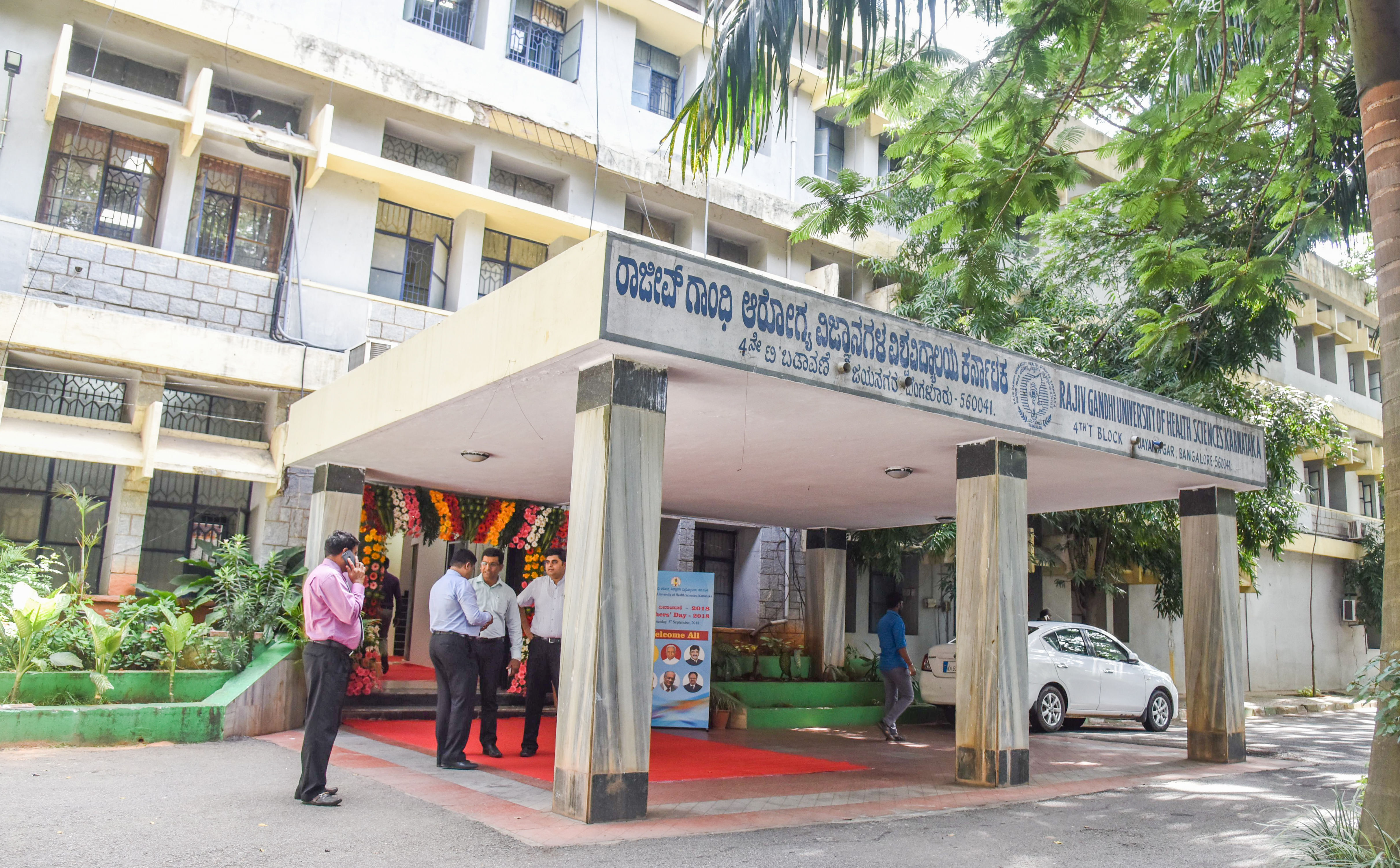
Rajiv Gandhi University of Health Sciences(RGUHS), Karnataka, 4 T Block Jayanagar, in Bengaluru.
Credit: DH Photo/ S K Dinesh
The students pursuing various courses under Rajiv Gandhi University of Health Sciences will soon face paperless examinations.
In a student-friendly move, the university is introducing a digital paperless exam on pilot basis for over 2,000 students of Physiotherapy and Fellowship programmes during the exams scheduled to be held next month. As per the details shared by the Vice Chancellor of RGUHS Dr M K Ramesh the answer scripts will be replaced with tablets, specially designed for the exams.
Based on the feedback from the pilot, the university will extend the same to other courses, including MBBS.
“The answers written on the tablet with the pen will be uploaded on the server immediately after the exam and there will be no room for malpractice” said the VC. However there will be no changes in the question paper, he clarified.
“The only concern is whether the students will be able to use the (stylus) pen with ease. We saw similar resistance when we introduced peripheral screening and digital evaluation. But now these methods are being adopted by other states and appreciated by the National Medical Commission,” said Dr M K Ramesh. He said it will help to curb the malpractice.
There are tabs within the cost bracket of Rs 8,000-Rs 10,000, designed only to write the exams and will be utilised by students for four years.
The university used to spend Rs 7-8 crore for the purchase of answer scripts alone.
Meanwhile, RGUHS is establishing skill labs at six districts where students can learn through simulation. The facility at Mangaluru, Bengaluru, Mysuru, Davangere and Kalaburagi districts and Hubballi will be used to train super-speciality and nursing students. This was implemented at BMCRI a few years ago.
The university has decided to build two exclusive allied health sciences colleges, which will offer 18 courses like optometry, perfusion technology etc.